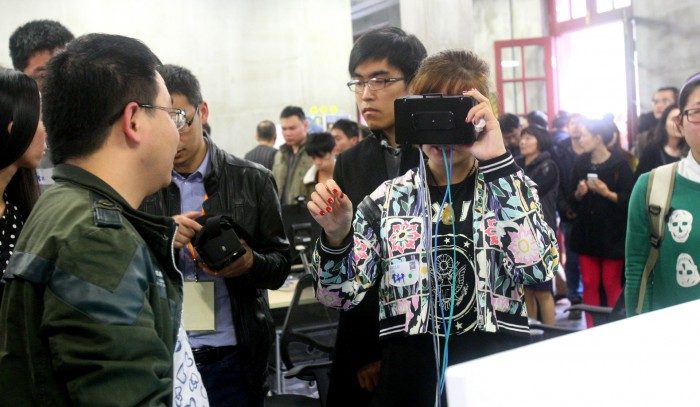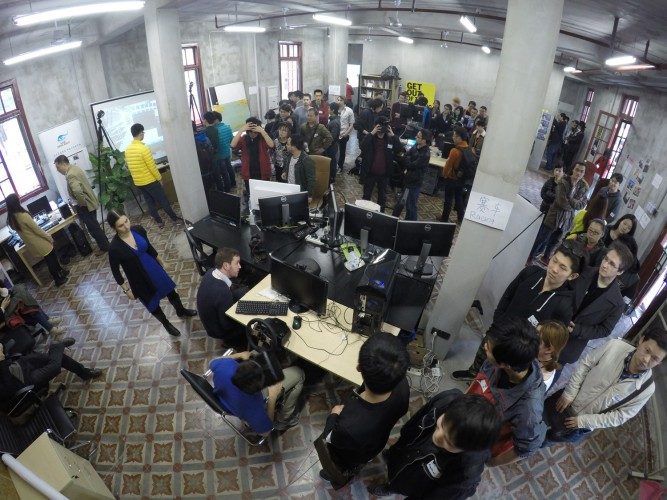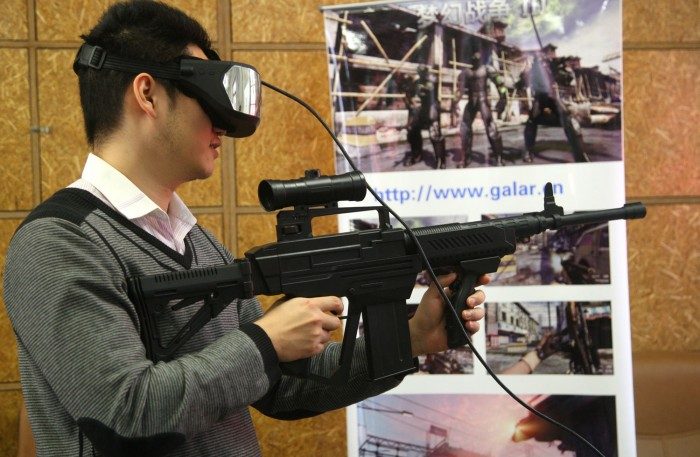China’s VR scene is heating up.
Shanghai just had its largest VR event to date. The second SHVR event (named as an homage to Silicon Valley’s largest community gathering, SVVR) had over 300 attendees, scores of demos and speakers, and a live VR meetup on VRchat in collaboration with the Brisbane community.
This guest article comes to us from SHVR, a meetup focused on the emerging virtual reality technology sector, held in Shanghai, China. SHVR aims to create a local community of VR developers, entrepreneurs, artists and early adopters enthusiastic about VR and willing to learn and share with each other.
The event began as an open call: whoever wanted to demo or speak was welcome to come, and they could invite their friends.
With minimal publicity, the event went viral. According to Ben Rudick, co-founder of Transist Labs which hosted the event, “We were overwhelmed by the response. Originally we planned for a maximum of 100 attendees. Those spots were filled in just hours. So we lifted the RSVPs caps and quickly hit 500. We had to cut it off; any more and we’d get shut down for fire code violations.”
There was a myriad of hardware on display, both mainstream (five Oculus Rift DK2s, and Samsung’s Gear VR) and homegrown China-made products including VR mobile holders (Virglass), optical tracking (YuanChuan , 原川), VR/AR glasses (LiXin Optical) among others. Several content developers were showcasing their work as well, such as game developer and VR evangelist Tianshe (天舍) with their zombie roller-coaster (met with screams and applause), Galar Technology with a VR FPS (complete with a motion-tracked assault rifle), panoramic video from ShiYe Media, and even an interactive VR modern art piece.
The Shanghai event is the most recent data point of a clear trend: VR is exploding in China, both in terms of public interest and hardware/software development. Last fall, the VRPlay Expo in Beijing had over 1,200 attendees. Baidu Tieba (Chinese reddit) has thousands of subscribers on its VR forum. Oculus Rift DK2s are fetching prices upwards of US$1,000 on Chinese auction sites.
One of the biggest players in China is BaoFeng MoJing, a pure-play VR company and affiliate of the billion-dollar BaoFeng Technologies. BaoFeng MoJing launched a VR smartphone adapter as well as raising $10 million to continue their VR work. But, they’ll face stiff competition: on April 14th, LeTV, a public Chinese company with a $12 billion market cap, announced its own VR smartphone adapter to be released in a couple of months.
Our thanks to the authors of this article, a collaboration by organizers of SHVR:
- Ben Rudick: Co-founder of Transist Labs in Shanghai, an early stage incubator and investor in companies that make the world more interesting
- Vincent Chen: Co-founder of Tianshe Media, is a Chinese game developer and VR evangelist in Shanghai
- Florian Brutsche: Swiss software engineer living in Shanghai and the co-founder of Pixolabs
- Christian Grewell: An American working at NYU Shanghai on projects to realize virtual reality’s potential to transform the education and training industry.
- Dongli Zhang: Chief of Staff at Transist Labs




